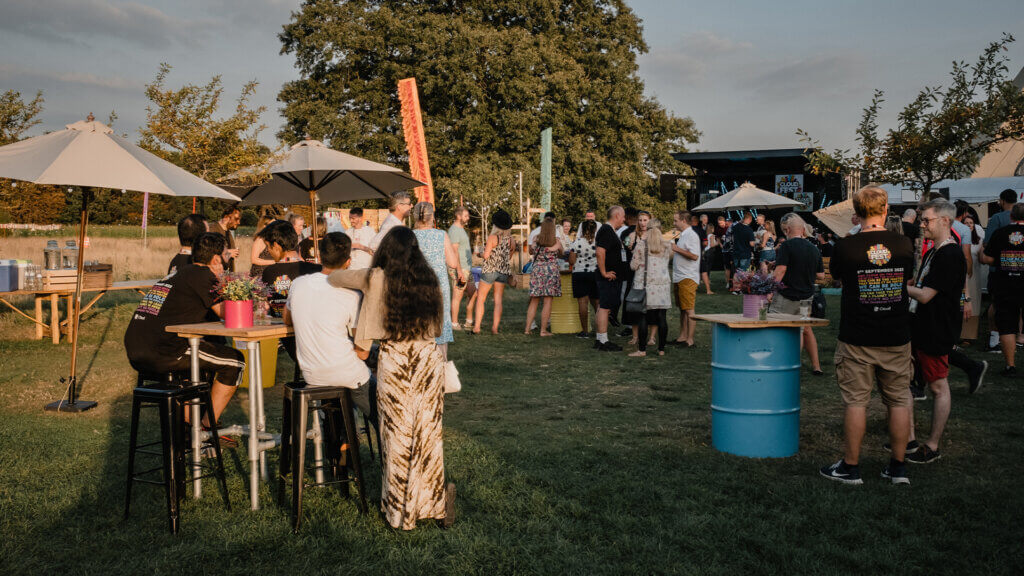An Interview with Robin Russell, Chairman & CEO, First Natural Brands

For more than 50 years, Tisserand has remained rooted in one unwavering principle: a dedication to sourcing and blending the highest quality essential oils. What began as a brand for passionate aromatherapy enthusiasts is now a trusted name in natural health and wellbeing.
As consumer lifestyles evolve — with a growing emphasis on convenient, holistic approaches to self-care — Tisserand has adapted and expanded. Today, it stands as a modern, forward-thinking health & wellbeing brand, built on decades of expertise in essential oil blending and innovation.
Tell us about your career journey to becoming CEO of Tisserand parent company.
I have spent my entire career working in FMCG or with SMEs in the UK and internationally. I started in market research and copywriting for advertising agency Ogilvy & Mather. In the 70s I moved to a smaller advertising agency called Everett’s, which handled advertising for Boots. I was involved at board level at Boots, working on a major image study research project to help the business redefine its strategies… So, I became the market research expert for Boots… it was a majestic learning curve.
Line management experience came from British American Tobacco (BAT), and I then joined consumer products group Also as an assistant general manager. Within six weeks I was in Sweden as a general manager to build the Scandinavian business. From there I was transferred to Barcelona, Spain to merge two companies and launch new products. Sara Lee later approached me to help grow its Spanish coffee business, where I learned a lot about influencing management to change. As a result of that, we launched Douwe Egberts Instant Coffee, which I took to about a 9% market share in Spain.
BP Consumer Products approached me to run the most successful company under its ‘Nutrition Division’ – its branded and private label business in France and Spain: When it decided to sell, I got backing for close to £200m, but in the end it went for nearer £260m. After that, a private equity house in New York asked if I’d help it to acquire a detergent business in Germany. It just so happened that had I bought the BP division, the first thing I was going to do was buy the German detergent company, so I still had all the research on the business. I spent three or four months working on that… and it was from that point on that I was basically working as an independent individual.
Through the 90s and until joining Tisserand, I’ve been backed by private equity on several businesses. In around 2007 I asked a boutique corporate finance business to investigate the ‘natural’ market for me. I realised that food was not where I wanted to be. Of the various companies I saw, I found Tisserand, which at that time was very much a niche brand, but I could see we could take some of its elements and bring it into a more popular market position. I joined the business in 2008.
What would you say are the stand-out moments – or lessons learned, that have been pivotal to your career to date?
It’s been a process of continuous learning: Intensive, multi-level learning. And you learn as much from your failures as you do from your successes. You see that markets change constantly, so you have to plan with flexibility, and respond with clarity for everybody that’s working for you. Great brands are built on irresistible consumer experiences. You have to start there. And my question is always; is there a better way to do this?
What is your business mantra?
My email address begins RobinRussellLHF. The LHF stands for Let’s Have fun.
You obviously only work with the brands and people you enjoy working with.
I’m more interested in who people are and what their character is. In one business many years ago, I kept someone on the board after an acquisition by a private equity house. He was a long standing employee who had a lot of expertise in production, manufacturing. He would give his opinion on things, which was often viewed as an anchor out the back of the boat, slowing us up.
He would frustrate everybody else, but I reminded them to listen to what he had to say because he’d seen so much… And he brought value to us… There were a few occasions where he proved his worth. So, you have to respect everybody’s character and work to it. That’s part of my mantra too.
What would be your advice for anyone considering launching a brand today?
You’ve got to be brutally honest about your product’s proposition. I have met so many start up people who are perhaps mixing passion with desperation. If something doesn’t deliver the irresistible experience compared to what a competition has, no amount of branding will fix that.
So, start with the product proposition. Get it right and build a brand around it. But be balanced with honesty. Yes, sometimes the honesty question challenge can be misinterpreted as negativity, but a positive solution to that is really important: Let’s face it 90% of new products fail.
Tisserand is in its 50th year – no mean feat for any brand or company. How does it manage to stay relevant?
Assess, evolve and stay fresh, right?
Way before I got involved with Tisserand, it already had a complete dedication to quality and authenticity… And that led it to become the reference brand in the niche area of aromatherapy.
At that time, we were saying… here is Tisserand, an essential oil brand that can help you in wellbeing. Today we are saying… Tisserand is a natural health and wellbeing brand able to increase your wellbeing because of its 50 years’ worth of expertise in essential oils: We’re working a transition there that fits with our insights into the market and our journey so far.
The essential oils, and wider wellbeing market, is intensively competitive. What lessons have you learned and how do you stay ahead of the competition?
We don’t chase trends for the sake of it. We work in a particular way that allows us to look at those trends and question how we can apply our products in a relevant way.
We’re also big on things such as the Soil Association – the authority of its audits and our retail customers’ audits where we manage their exclusive brands. We also ensure our NPD is relevant. Right now, we see people moving towards wellness routines. We want them to try and recognise our brand and products, hence the launch of our Wellness Routine duo kits. We’re giving people an essential oil blend rollerball and a trial size of our body and room spray: They’ve both got different usages and benefits.
How important are natural, clean and provenance to Tisserand?
They’re non-negotiable standards, built into every decision we make.
Who are Tisserand’s current shoppers/users and how has this evolved and continuing to evolve?
When I first came into the business, I did some research and found that the prompted awareness of Tisserand was 1 in 10 women. And that was dominated by women over 50.
Looking at the research we did in 2021, the prompted awareness of Tisserand amongst women was approximately 1 in 4. What’s interesting is that the prompted awareness of women, mums under 40… and over 40 and into their 50s, is now the same. So, we’ve managed to go down in the age demographic of our shoppers without losing the top people.
Tisserand is evolving from being niche to mainstream, but without losing our unique, essential oil experience. That’s why I say we are a natural health and wellbeing brand using essential oils, rather than an essential oil brand that now makes other products.
How important is social media in driving shopper awareness and understand of wellbeing – including essential oils – and Tisserand as a brand?
Social media is quite good for us. It alerts us to new trends or waves of interest in something. As a brand, we have to be careful not to be seen to be just taking advantage of those trends, but actually offering something that’s a good product and experience. So, it needs to be observed and managed carefully, with no bandwagon jumping.
Many Tisserand employees have worked with the business for quite a long time, some post 15 years. What’s the secret to keep people happy?
First of all, it’s making sure they get what we’re trying to do. And they do. Also, our employees feel valued and recognised for the work they do, plus there’s a good mix of work and fun.
What are your ambitions for the business in the next five years?
I would like to see it capture the mainstream market in natural health and wellbeing. To do that we’ll also maintain our position as the reference brand in essential oils.







